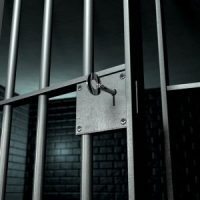Is Leaving a Halfway House Early the Same as “Escaping” from Prison?

In criminal law there is a concept known as mens rea, which is Latin for “guilty mind.” It refers to a legal requirement in a criminal prosecution that the government prove the defendant acted with a culpable state of mind. That is to say, the defendant must be aware they are engaged in a certain course of conduct, which in turn falls within the scope of criminal statute. At the same time, it is not always necessary for the defendant to know what they were doing was actually illegal.
Did the Defendant “Wilfully” Break the Law?
If this sounds confusing, even courts sometimes have difficulty making this distinction. A recent decision from the United States Court of Appeals for the 11th Circuit, United States v. Bush, provides a helpful illustration. In this case, the defendant was completing a prior criminal sentence in a halfway house. Before his time was up, however, the defendant left the halfway house. He claimed it was because employees at the halfway house had mistreated him and members of his family.
Federal prosecutors charged the defendant with two crimes. The first was escaping from federal custody under 18 U.S.C. § 1751. The second was a “willful failure of a prisoner to remain within the extended limits of his confinement” under 18 U.S.C. § 4082.
The defendant chose to represent himself at trial. He faced a substantial roadblock, however, as the trial judge effectively barred him from offering any evidence with respect to why he left the halfway house early. The court said the only issue for the jury to consider was whether the defendant knew he was required to be at the halfway house and left without permission. Whether the defendant knew he was committing a crime in leaving was irrelevant.
The jury convicted the defendant on both counts. The trial court sentenced the defendant to 3 years and 1 month in federal prison. On appeal, however, the 11th Circuit reversed the § 4082 conviction. As the appellate court explained, the government chose to indict the defendant under two different statutes. The § 1751 charge did not require the government to prove the defendant knew his actions were unlawful. But as previously noted, § 4082 criminalizes the “willful” failure of a prisoner to remain at a halfway house. In this context, a “willful” violation does require proof that the defendant acted “voluntarily and purposely, with the intent to do something the law forbids.”
In other words, the jury needed to consider–and find–that the defendant knew he was breaking the law by leaving the halfway house. Since the trial judge failed to properly instruct the jury on this point, the defendant was entitled to a new trial.
Contact the Joshi Law Firm Today
Holding the government to its burden of proof is a critical component of any criminal trial. An experienced Orlando criminal defense attorney can help ensure that the courts follow the law in this area. Call the Joshi Law Firm, PA, today at 844-GO-JOSHI or contact us online to schedule a free initial consultation.
Source:
media.ca11.uscourts.gov/opinions/pub/files/202213867.pdf

